Providence Noir Read online
Table of Contents
___________________
Introduction by Ann Hood
PART I: DOWN CITY
Gold Leaf
LUANNE RICE
Fox Point
The Pig
JOHN SEARLES
Arnold Street
Under the Shepard Clock
ANN HOOD
Downtown
The Vengeance Taker
ROBERT LEUCI
Olneyville
Waltz Me Once Again
LASHONDA KATRICE BARNET
Mount Hope
PART II: WHAT CHEER
Once, at Trinity Rep
ELIZABETH STROUT
Trinity Repertory Company
The Autobiographical House
AMITY GAIGE
College Hill
Femur
HESTER KAPLAN
Butler Hospital
Missing Sri
MARIE MYUNG-OK LEE
Brown University
$1,000 Nassau
THOMAS COBB
Triggs Memorial Golf Course
PART III: GOD’S MERCIFUL PROVIDENCE
All in the Family
BRUCE DESILVA
Federal Hill
Armory Park
TAYLOR M. POLITES
Armory District
Training
DAWN RAFFEL
Providence Station
WaterFire’s Smell Tonight
PABLO RODRIGUEZ
WaterFire
The Saturday Night Before Easter Sunday
PETER FARRELLY
Elmhurst
About the Contributors
Bonus Materials
Excerpt from USA Noir edited by Johnny Temple
Also in Akashic Noir Series
Akashic Noir Series Awards & Recognition
About Akashic Books
Copyrights & Credits
INTRODUCTION
CRIMES AND MISDEMEANORS
Like so many things, it started with Sunday Afternoon at the Movies. It started with Barbara Stanwyck appearing at the top of a staircase wrapped in a towel and Fred MacMurray (Steve Douglas of My Three Sons!) making wisecracks and double entendres. It started with Double Indemnity. My grandmother Mama Rose in her faded pink chair, muttering in broken English. Me on the floor in front of the Zenith, munching scorched Jiffy Pop, transfixed.
“How could I know,” MacMurray as Walter Neff asks, “that murder sometimes smells like honeysuckle?” This is poetry, I thought. This is sex and mystery and murder. This, I later learned, is noir.
I was a kid who saved her allowance to buy Nancy Drew books, one a week. I read them in order, from The Secret of the Old Clock to The Mystery of the 99 Steps, lining them up on a shelf in my room. Their bright yellow bindings perfectly matched the yellow and white gingham bedspread and curtains. Everything about Nancy, Bess, and George was bright: their smiles, Nancy’s blue Roadster and her boyfriend Ned Nickerson. Even though the covers were meant to look spooky, Nancy always appeared with cherry-red lips and a blond flip hairdo, cast in a beam of light.
Noir was everything Nancy Drew wasn’t. From the moment Walter Neff arrived sweaty and wounded at his insurance office, I knew I had stepped into someplace new, someplace dark. I didn’t know then that Double Indemnity and The Postman Always Rings Twice, and all the other movies I watched on those long-ago Sunday afternoons with Mama Rose, had sprung from books. That, I learned later. And once I did, I devoured them. As an international flight attendant for TWA, I stuffed James Cain, Dashiell Hammett, and Raymond Chandler paperbacks into my fat crew bag, reading them on the jump seat at thirty-five thousand feet over the Atlantic as the passengers slept. This was the world of dames and hard-boiled men, of shadowy cities, of booze and cigarettes.
“Noir is about sex and money and sometimes about revenge,” Otto Penzler, the owner of the Mysterious Bookshop in Manhattan, told the New Yorker in 2010. In noir, he said, there are no heroes and no happy endings.
As often happens with literature, it finds you when you need it most. Those Sunday-afternoon movies helped move me from childhood to adolescence, away from Nancy Drew’s sunny life; they offered a glimpse of what was out there in the big world beyond my little town of West Warwick in the littlest state. The novels landed in my uniformed lap as my world began to unravel.
My brother Skip, my only sibling, died suddenly in 1982. His body was found facedown in a few inches of water in his bathtub in Pittsburgh. The screen in the window had a bullet hole in it. Safe deposit box keys were missing. There were drugs and footprints, a scorned fiancée, and an ex-wife. There had been arguments with both of them, and threats made. There was one witness: Skip’s Irish setter, Rogan. After a six-month investigation, the police determined his death was accidental, even though they could never connect the dots of the bullet hole or the missing keys or any of the other suspicious events and characters.
Refusing to accept the police report’s findings, my mother began going to psychics to solve the crime. Each one told her the same thing: he had been murdered by a dark-haired man in an army-green T-shirt. But who was this mysterious man? She stayed up nights trying to figure it out, to make sense of a thing that was senseless.
Me? I read noir fiction, fiction full of villains, not heroes. Fatalistic and desperate, the characters appealed to me and my broken, confused heart. Months passed, 1982 became 1983, and then one day I looked up and it was the twenty-first century. Whatever happened the night my brother died remains a mystery. But my love of noir continued to grow as I discovered Patricia Highsmith and new noir writers like Dennis Lehane.
So when Johnny Temple, Akashic Books’ publisher, invited me to edit an anthology of original short stories called Providence Noir as part of the Akashic Noir Series, I couldn’t say yes fast enough. Not only did my love and admiration of noir fiction make his invitation so appealing, but the opportunity to highlight my hometown of Providence, Rhode Island—a noir setting if ever there was one—added to my delight and eagerness.
Providence was founded in 1636 by a rogue named Roger Williams. He escaped here when Massachusetts was ready to deport him back to England. In the almost four hundred years since, we’ve become infamous for all sorts of crimes and misdemeanors, including serving as home base for the Patriarca crime family for decades. My very own Uncle Eddie—I can hear Mama Rose screaming at me: “He wasn’t a blood relative, he was related through marriage!”—was gunned down in the Silver Lake section of town in 1964, just a year after he drove me in his white Cadillac convertible in a parade as the newly crowned Little Miss Natick. The writer Geoffrey Wolff told me that once he went to a barber in Princeton, New Jersey, and the barber asked him where he was from. “Providence,” Wolff told him. The barber put down his scissors, raised his hands in the air, and said, “Providence? Don’t shoot!”
I’ve asked fourteen of my favorite writers to contribute short stories to Providence Noir. We have stories to make you shiver, stories to make you think, stories that will show you my beautiful, noirish city in a way it’s never been highlighted before.
Elizabeth Strout, whose book Olive Kitteridge won the Pulitzer Prize for Fiction in 2009, takes us to Providence’s esteemed theater company, Trinity Rep. Providence native, novelist, and short story writer Hester Kaplan, winner of the 1999 Flannery O’Connor Award for Short Fiction, sets her story at our local mental hospital, Butler. Alabama native Taylor Polites wri
tes about his own neighborhood, the Armory District, so named for the hulking 1903 armory that makes up one of its borders. Novelist Amity Gaige graduated from Brown University and returns to College Hill for her story. John Searles, who is not only a best-selling novelist but also the book critic for NBC’s Today show, drops his story on Arnold Street. LaShonda Barnett sets “Waltz Me Once Again” in the Mount Hope section and features Providence’s vibrant Cape Verdean population.
Olneyville is the setting for Robert Leuci’s eponymous story. Leuci is a former New York City police detective known for exposing corruption in the department; the book and movie Prince of the City are partially based on his career. Former Providence resident, essayist, and author Marie Myung-Ok Lee places her story in and around Brown University where she used to teach. I go back in time, to the downtown Providence I knew when I was a kid and people arranged to meet under the Shepard clock. Since 1994, sculptor Barnaby Evans has been igniting Providence’s rivers with one hundred bonfires. That’s where Pablo Rodriguez, a popular radio host on Latin Public Radio and an OB-GYN, tells his murderous tale.
New York Times best-selling novelist Luanne Rice has previously used Newport, Rhode Island as a setting. But here she writes about Fox Point and its Portuguese heritage. Edgar Award–winning crime novelist Bruce DeSilva has set three novels in Providence, and his short story takes place in the Federal Hill area. Dawn Raffel is a novelist, memoirist, and short story writer, as well as a graduate of Brown University. Her story takes place in the city’s train station. Thomas Cobb’s 1987 novel Crazy Heart was adapted into the Oscar Award–winning film of the same name. His story is set on the Triggs Memorial Golf Course. And the anthology closes with a story set in the Elmhurst section, written by director, screenwriter, producer, and novelist Peter Farrelly.
What a lineup of writers to illuminate Providence’s noir side! The city’s landmarks, streets, parks, and neighborhoods come alive in their storytelling.
Edgar Allan Poe, who wrote one of my favorite noir short stories, “The Tell-Tale Heart,” lived here ever so briefly. Back in 1848, he became enamored with a Providence woman, poet Sarah Helen Whitman. Poe said that he fell in love with her at first sight when they met in her rose garden behind her house on Benefit Street. A condition of their courtship was that Poe stop drinking. When someone handed Whitman a note telling her that Poe had broken that promise, she immediately ended the romance. Poe left Providence, and died a year later. He had written “The Tell-Tale Heart” five years earlier, but its opening lines seem appropriate for introducing the stories I’ve gathered for Providence Noir: “Hearken! and observe how healthily—how calmly I can tell you the whole story.”
Hearken, indeed.
Ann Hood
Providence, RI
February 2015
PART I
DOWN CITY
GOLD LEAF
BY LUANNE RICE
Fox Point
The women of Fox Point wore black because someone was always dying. The men fished on boats out of New Bedford and got lost at sea, but this summer the fishing was bad and the men stayed home. I watched them out my studio window, saw how they crammed into the narrow strip of shade cast by the candy-colored houses, pitching pennies and telling stories while the silent women swept their cigarette butts from the gum-spotted sidewalk.
It was hot. I worked in shorts and my bra, making portraits with the bodies of angels and the heads of local politicians. I received good commissions but it didn’t matter because my boyfriend was a lobbyist. He paid my rent.
My studio was the third floor of a blue three-family house on the corner of Ann and Arnold streets. I’d lived here ten years, since my junior year at RISD. The air was a toxic stew of gesso, oil paint, and the adhesive I used to apply gold leaf. I gave the politicians halos. They paid extra for that.
The windows were open for a cross breeze. It came off Providence Harbor filled with exhaust from tankers and traffic on I-195. People drove that highway to the Cape, where Lenny and his wife had a beach cottage. Just thinking about that, him being there in the salt air with her while I roasted on Ann Street, depressed me and got the swarm working. I called it “the swarm” because it felt just like bees buzzing in my head, stinging me from the inside, and it started up every time I thought of Lenny and his wife.
I went to the window to cool my sweaty body, and maybe I didn’t mind the men looking up at me. They got an eyeful whenever possible. To them I was exotic. For one thing, I wasn’t from the Azores. I wasn’t married. They saw my lover come and go and it drove them a little crazy. The women in black hated me. I didn’t care. I just wanted the feeling in my head to stop, and the admiration of men helped. I’d been raised Catholic, more Madonna than whore, but all Catholic girls know you can’t be one without the other.
It wasn’t this clear-cut, but: Lenny was with his wife, so I would get what I could from these husbands closer at hand. You don’t want to be set up in life as always competing, but that’s what can happen if you grow up with a beautiful mother who sees you as the enemy. She tried to close her eyes to what my father did, and I can’t really blame her. Jealousy is a vicious master.
I stood at my window and smiled at the husbands, one in particular.
His name was Dominguez. Every time I glanced out he was watching me; as my grandmother would say, he had a bump on me. He’d helped me out every chance he got, like when he saw me dragging my garbage to the curb, or when I had a big grocery order to carry upstairs, or last winter, when my VW had gotten stuck in the snow and he’d attached chains to his Ford 250 to pull me out of the drift.
He and his wife, who was spending July in bed with a difficult pregnancy, lived with his mother, kitty-corner across Arnold Street. It was neighborhood knowledge that two of his four brothers were in prison for beating a man to death. The guy had come from Fall River to steal TVs from Fox Point families whose men were fishing at sea, but he picked the wrong house. Two brothers were home, and when they caught the intruder they killed him with baseball bats.
Dominguez stared up at me, but that day I didn’t smile back at him. I can’t say the plan hadn’t begun, but I am sure of this: it wasn’t yet conscious. The swarm first came when I was a little girl, seven, and I’d hear my parents in the next room, grunting in the dark, and my own jealousy would attack me, sting-sting-sting, until I was swollen from venom and tears. I’d have done anything to make those bees stop.
Down the street the bells of Holy Rosary tolled. It was late morning, not on the hour, so it had to be a funeral. I wished it were Lenny’s wife’s. If she were dead, I wouldn’t have to feel jealous anymore. Lenny would be mine alone. He wouldn’t just pay my rent, he’d love me day in and day out. That kind of love was all I’d ever wanted.
All week the temperature rose. Starting around eleven o’clock each morning the men would go in and out of Dominguez’s mother’s garage, getting beers. Their voices grew louder as the beer went down and they threw the pennies harder, betting on whose would land closest to the sidewalk crack. I heard the coins jingle through the racket in my head. Dominguez focused on my window with that black-eyed laser-beam look he had.
* * *
Around noon on Thursday Lenny called from the Cape.
“What are you doing, babe?” he asked.
“Working, love,” I said. “What are you doing?”
“About to head out on the boat. I miss you so much.”
“On the boat with who?” Oh, I was leaking poison, burning inside from all the bites and stings, and I could barely hear my own voice over the sound of wings humming louder and louder.
“Don’t get like that.”
“Why are you even calling me?”
“Look, I was going to say, drive out here. I can’t take being away from you.”
I didn’t reply.
“You can stay on the boat, she won’t know. I’ll meet you there tonight. I can’t be without you.”
“But you are without me. You’re there with
her, and I’m here.”
“You know it’s not like that with her and me. I’m only staying for the kids. You’re the one, you know that.”
“I wish I were recording you.” It was my voice, but the words came from someone else. “I’d play it back to her.”
“Ha,” he said, one swift bark, then silence.
He was waiting for me to take it back. I held my breath; I knew I should say I was sorry, I didn’t mean it, I’d never do that, but the relief that poured through me made the pain stop, just for that moment.
“If you ever did—” he started to say. I clung to the receiver. We’d been seeing each other for two years and at first it was okay, but the longer we went on the more I began to feel like a human hive full of venomous insects. She must have walked into the room at that moment, because he hung up. I felt I might die every time he chose her over me.
I’d met Lenny when he asked me to paint his portrait—I’d done many of his friends and clients. He sat for me, and I felt loneliness pouring off him—it’s like that with some married men I’ve painted. They are so unhappy living without real connection. Their wives tend their marriages as if the husbands were plants; they weed, water, and prune fresh growth, and anything new or challenging gets lopped off.
I wouldn’t do that. I know what men want. It’s my special gift, one I’d always had. It couldn’t be celebrated in school, I never won a blue ribbon or high honors for it, but I got my rewards in other ways. A secret glance means everything. The way they can’t stop looking at me, and me knowing they think about me when I’m not there. The way my father petted me like a cat and called me his sweetheart, his real sweetheart.
I paced my studio. Sweat ran between my shoulder blades and I felt torturous hunger. I was a bottomless pit. I put on a sundress and went downstairs. Clink, clink, I heard the pennies still hitting the pavement.
Dominguez watched me open my car door. I did not look at him because I wanted to drive him crazy; and what I was doing—it wasn’t in the front of my mind, but somewhere near the base of my brain, in that stew of feelings and instincts, not thoughts, nothing as clear as that—was setting the bait. His mother and her sister stood off to the side in their Cape Verde black, whispering and leaning on their brooms, and their hissing voices sounded like the drone in my head.

 Kitchen Yarns
Kitchen Yarns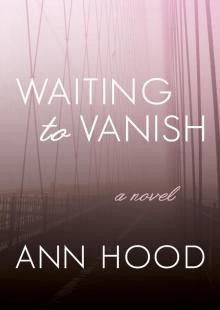 Waiting to Vanish
Waiting to Vanish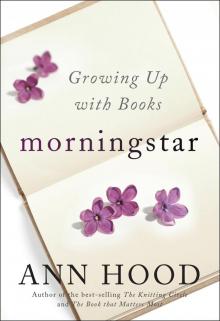 Morningstar
Morningstar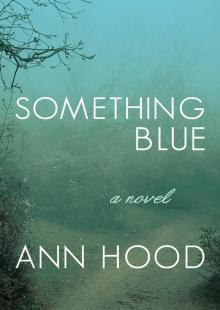 Something Blue
Something Blue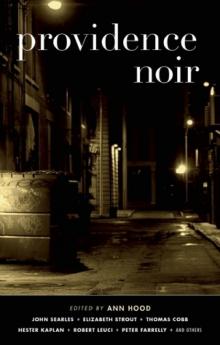 Providence Noir
Providence Noir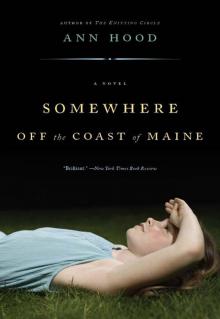 Somewhere Off the Coast of Maine
Somewhere Off the Coast of Maine Jewel of the East
Jewel of the East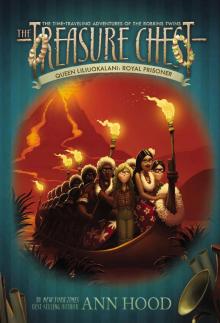 Queen Liliuokalani: Royal Prisoner
Queen Liliuokalani: Royal Prisoner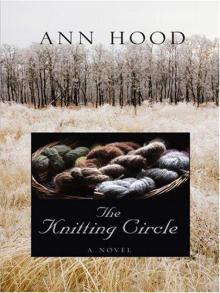 The Knitting Circle
The Knitting Circle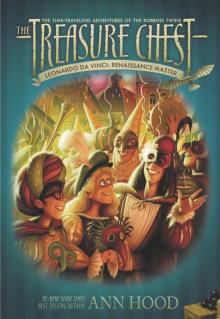 Leonardo da Vinci: Renaissance Master
Leonardo da Vinci: Renaissance Master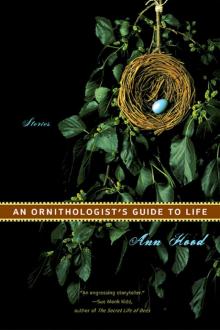 An Ornithologist's Guide to Life
An Ornithologist's Guide to Life The Red Thread
The Red Thread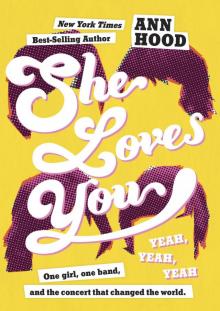 She Loves You (Yeah, Yeah, Yeah)
She Loves You (Yeah, Yeah, Yeah)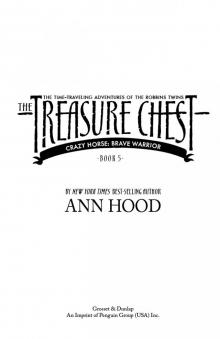 Brave Warrior
Brave Warrior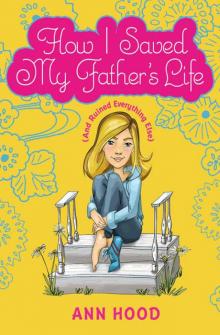 How I Saved My Father's Life (and Ruined Everything Else)
How I Saved My Father's Life (and Ruined Everything Else)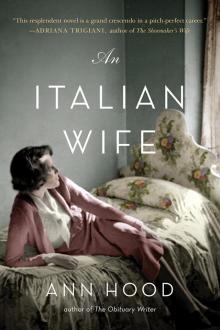 An Italian Wife
An Italian Wife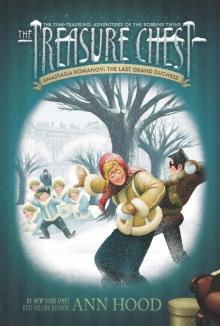 Anastasia Romanov: The Last Grand Duchess #10
Anastasia Romanov: The Last Grand Duchess #10 Prince of Air
Prince of Air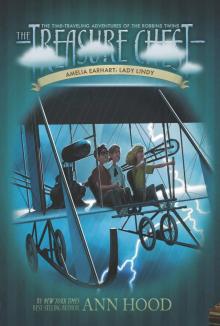 Amelia Earhart: Lady Lindy
Amelia Earhart: Lady Lindy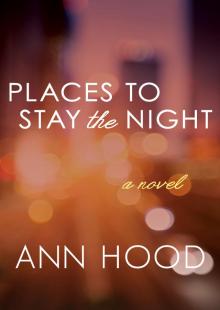 Places to Stay the Night
Places to Stay the Night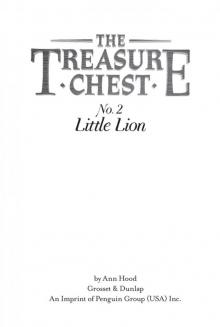 Little Lion
Little Lion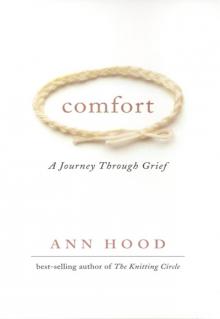 Comfort
Comfort Angel of the Battlefield
Angel of the Battlefield